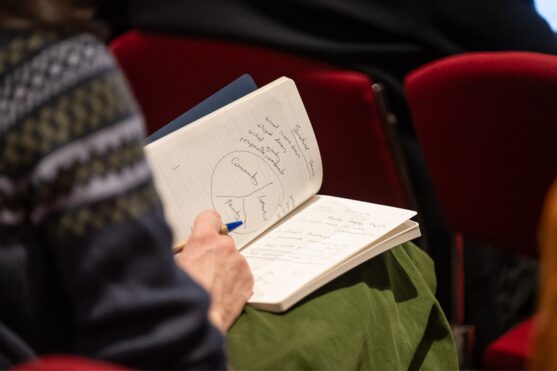The Endowments for Impact Challenge: aligning investments with mission

A pioneering collaboration between six of Australia’s leading trusts and foundations is set to reshape philanthropic investments. The Endowments for Impact Challenge is an open tender competition inviting financial advisers to showcase innovative strategies for aligning charitable endowments with responsible, mission-driven investment practices.
The trusts and foundations involved are seeking advice in managing a combined sum exceeding $170m and learnings from the initiative will be shared with the sector.
Historically, granting and investing have been treated separately, with investments focused on income generation, but there is a growing shift towards responsible investment. The initiative is designed to highlight the growing market demand to advisers and expose trusts and foundations to high-quality thinking from diverse investment practitioners.
The Reichstein Foundation, Dusseldorp Forum, Besen Family Foundation, Oranges & Sardines Foundation, Northern Rivers Community Foundation and Inner North Community Foundation are partnering on the Endowments for Impact Challenge.
Rachel Ball, CEO of Reichstein Foundation, said that while a number of trusts and foundations have been working hard with their advisers to shift their endowments in recent years, there is significant potential to expand and deepen this part of the advisory industry. This can happen at the same time as promoting transparency and collaboration in the investment of charitable endowments.

“Philanthropy has learned that it can be valuable to collaborate in our grantmaking and we do that well. But collaboration is limited in our investing,” said Rachel. “We’ve tended to work separately to identify advisers and shape our portfolios, missing opportunities to learn from each other and improve as a sector.”
The Endowments for Impact Challenge (EFIC) offers a different approach and is based on similar models from the UK (the ESG Olympics) and Canada (the Great Canadian ESG Championship). The open nature of the challenge aims to shift patterns in both sectors.
Rachel said the development of programs such as the Foundations Group for Impact Investing (FGII), which is hosted by Philanthropy Australia, illustrate the growing interest in impact investing, in addition to mission-aligned and responsible investing. FGII now has more than 50 members representing over $10bn of funds, or around 20% of the overall $50bn worth of endowment funds invested in Australia.
“The sector is increasingly taking the view that all capital has impact. It’s just that traditionally we’ve paid more attention to the impact of our grantmaking than our investments.
“In fact, it’s not unusual for us to not even be aware of the impacts of our investments. As a sector that’s here to serve the public good, we have a responsibility and also a huge opportunity to use our capital in aid of our values and missions.”
Rachel said roadblocks in the past relate to mindsets in the sector and, in some cases, access to tailored investment advice. “EFIC is an opportunity for us to work together to address these potential roadblocks,” she said.
“It’s not simple to transition from a traditional portfolio to one that factors in impact alongside risk and return, particularly for smaller trusts and foundations without inhouse investment expertise. The objective of the EFIC is to open up access to external support to achieve those transitions,” said Rachel.
On the financial advisers’ side, she said common obstacles have included the dominance of advisory models that prioritise efficiencies of scale over the flexibility to accommodate clients’ specific missions and objectives.
“The sort of purpose-driven, bespoke advice that foundations and trusts need might not always be an easy fit for advisers,” she said. “So, this transition might require new thinking and offerings from advisers, too.”
Rachel said conversations with financial advisers have been positive and over 40 have signed up to receive the request for proposals later this month. Advisers will be asked to answer a range of questions about their work and approach. Shortlisted finalists will be invited to present at a town hall event in 2025 and the key findings will be shared with the sector.
David Hetherington, CEO of Impact Investing Australia, which is coordinating the EFIC, said: “We’re calling on investment advisers to register now for this exciting opportunity to showcase their expertise in responsible investing that not only meets the financial goals but also advances the missions of these philanthropic organisations.”
The EFIC is also supported by Communities Foundation Australia, Paul Ramsay Foundation, Grace and Emilio Foundation, Australian Communities Foundation and Fouress Foundation, which will be keenly following the outcomes.
Rachel urges other interested trusts and foundations to encourage their financial advisers to take part. And to get in touch via the EFIC website if they’d like to support the project, attend the event or receive the final report.
“This is an exciting time to get involved in this work. My background is not in investing and most of the participating foundations are in the same boat, but we can still play an important role in realising the potential that lies within the $50bn of investable capital that’s sitting within our sector.”
Key details
Registration: Investment advisers (Australian Financial Services licensees) can register their interest at endowmentsforimpactchallenge.com.
Timeline: Request for proposals will be sent to registered advisers and will be accepted from 20 November to 18 December 2024. Shortlisted finalists will be invited to present to the trusts and foundations (and other sector stakeholders) at a town hall event in Sydney on 27 March 2025.
Final report: A report capturing key findings and recommendations will be published in 2025 and shared widely.